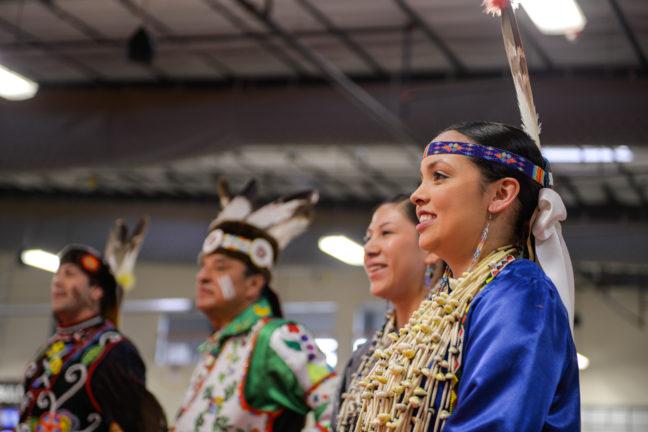There are some things in this world that as hard as you try, you can never forget.
I remember such a feeling during my freshman year of high school, when I was sitting in English class, and looked up to my classmates giving me a “Sieg Heil.”
I felt it four years later, when I sat down to a desk that was vandalized not with song lyrics or lewd drawings, like everyone else’s, but with death threats and swastikas.
I felt it just a few weeks ago, when I found out that a monument near the Gates of Heaven Synagogue, right here in Madison, had been covered in Nazi symbols just hours before the beginning of Rosh Hashanah, the Jewish New Year.
Even though my ancestors have shed their yellow star patches, we will never fully be free of them. As a member of an ethno-religious minority, I will never forget the feeling of wanting to strip myself of this identity when faced with hatred. I will never forget wishing it was as easy as taking off a costume.
I am sure a member of any minority group in America, whether they be African American, Native American, Muslim, Indian or Latinx, understands this feeling. Although we are proud of our identities, unique cultures and rich heritage, blatant bigotry makes being different bittersweet. You cannot have the positive experiences of belonging to a minority group without the negatives. Well, unless you are a white person on Halloween — or rather, a portrayer of cultural appropriation.
Oxford Dictionary defines cultural appropriation as the unacknowledged or inappropriate adoption of the customs, practices, ideas, etc. of one people or society by members of another and typically more dominant people or society. The systemic power dynamic and lack of mutual respect that occurs in this cultural phenomena are what separates cultural appropriation from cultural exchange.
From minstrel shows of the early nineteenth century, to popular musicians like Madonna, Gwen Stefani and Miley Cyrus, it is obvious that cultural appropriation has been a component of American popular culture for decades, but has only recently been gaining attention by the general public. No matter how many celebrities practice it, or how cute the costumes or trends may be, cultural appropriation is never okay and there are no exceptions, regardless of the intent of the portrayer. The negative effects of cultural appropriation are numerous, and demean minority cultures.
In terms of fads, costumes and fashion, cultural appropriation makes certain styles seem cool and edgy for white people, but too ethnic for people of color. Standards of professionalism in many business places bar African American women from wearing their natural hair in cornrows, dreadlocks or an afro, making them choose between being themselves, and succeeding in the business world.
But white women, such as Kylie Jenner, are lauded when they choose to wear dreadlocks or cornrows. The fact that African American women have to fight to wear cultural expressions that white women are celebrated for wearing tells African Americans that their natural beauty is only beautiful on a white woman — that they will never be beautiful until they present like white people.
Given that Halloween season is upon us, culturally insensitive costumes are bound to be rampant.
If the above reasons are not enough to convince you of making sure your costume isn’t appropriative of any culture, remember that cultural appropriation says more about the person appropriating the culture than it does about the culture itself. It blinds us from historical fact.
If you see a non-Native American girl dressed as Pocahontas, she is not just portraying a Disney princess, but rather a child who was abducted, forced to marry an Englishman and used as racial propaganda until her death at the young age of twenty one. Wearing a Pocahontas costume, or any culturally appropriative styles at any time of the year, shows how privilege makes us so blind to the struggles of minorities, that we trivialize them as costumes. If you do not want to appear ignorant and arrogant, make sure not to dress like you are.
Cultural appropriation is unacceptable in this day and age, regardless of intention or portrayal. These costumes and styles are insensitive, inaccurate, and draw on racial stereotypes that minimize the experiences of the most tread-upon groups in America.
If you cannot be an advocate for minority groups, at least be kind enough not to rub salt in their wounds, wounds created by systemic racism. Even though you can take off a costume, the people who are represented with such stereotypes cannot control the skin they are in.
Abby Steinberg (abigailsteinberg@outlook.com) is a freshman majoring in political science and intending to major in journalism.


